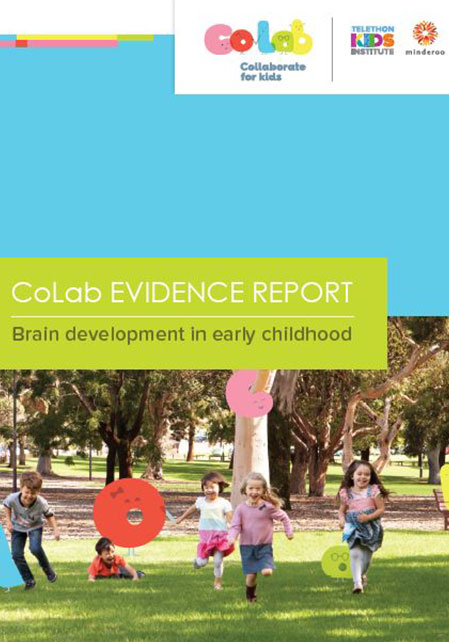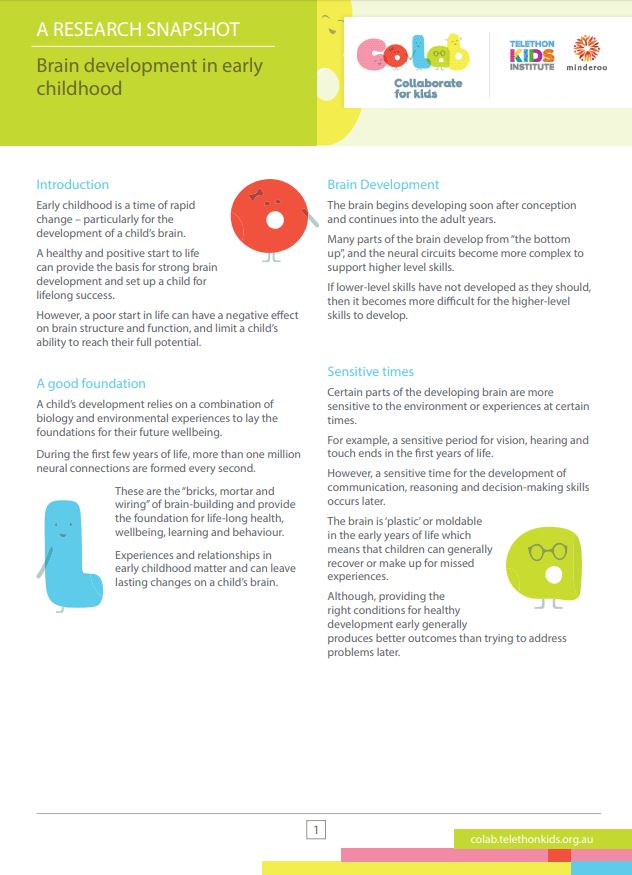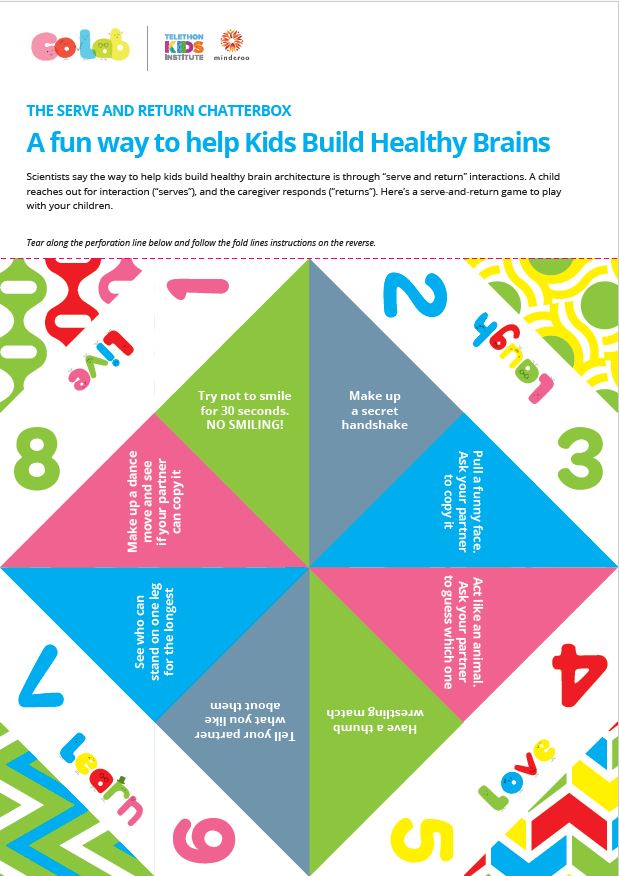The early years of life are characterised by significant opportunity, rapid change and accelerated development which is unparalleled by any other subsequent stage of life.
During these years, the foundations for lifelong physical health, mental health and wellbeing are laid and the developing brain is most receptive to the influence of relationships and experiences.
A positive start in life aids children to reach their full potential, and conversely a poor start can undermine their development and restrict their future economic and social mobility. This can have far-reaching consequences for not only the child but also for future generations, and for the future productivity and vitality of our society.
Whilst these key concepts have been understood for some time, advances in neuroscience, behavioural and social sciences give us a greater insight into how early childhood experiences can shape development.
Evidence Report
The early years of life are characterised by significant opportunity, rapid change and accelerated development which is unparalleled by any other subsequent stage of life.
This Evidence Report highlights the importance of the early years and the neuroscience of early brain development and describes the crucial role of relationships, experiences and stress in shaping the developing brain structure and function.
Read this Evidence Report for an in-depth look at brain development in the early years.
Read the reportBrain development
Read the report
Research Snapshot
Early childhood is a time of rapid development and significant opportunity for leaning; more so than any other stage of life. How a child experiences the world during these early years lays the foundations for their lifelong health and wellbeing.
A healthy and positive start in life can enable a child to successfully manage everyday challenges, develop a sense of personal wellbeing, build relationships and reach their full potential.
Read this Research Snapshot for a quick look at brain development in the early years.
Read the snapshotBrain development
Read the snapshot


